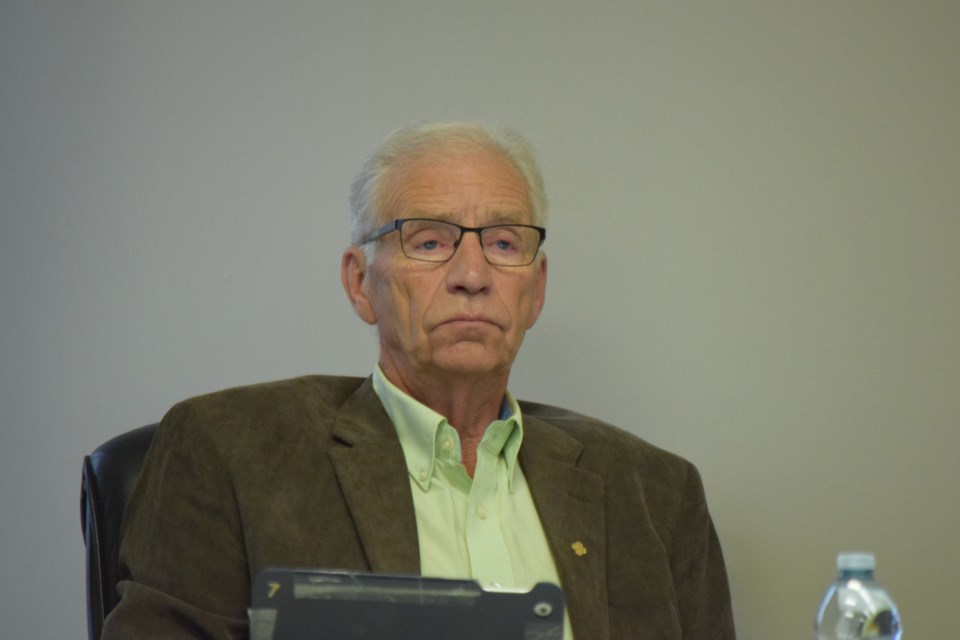BARRHEAD-It has been an unofficial practice of successive County of Barrhead councils to put away money in reserves for future projects and a rainy day, but now it is official.
At their April 6 meeting, councillors unanimously approved Policy FN-02 (Reserves).
The policy explains why the reserves exist, establishes how funds are set aside for projects and sets the standards and guidelines for their management.
At the start of the year, the county had $992,741 in unrestricted reserves and $12,723,52 in restricted reserves.
County manager Debbie Oyarzun said that reserves are an important part of a municipal government's operations and while it may look from the outside like the county is flush with cash, it is important to remember that under the Municipal Government Act (MGA) municipalities must balance their operational budgets.
"The only way to take on significant capital projects is by continuously putting money away until you have enough to pay for it," she said, adding the other benefit of reserves is that it reduces a municipality's debt.
Despite the importance of reserves, Oyarzun said, the county did not have a reserve policy, so administration drafted one using the municipality's best practices and using other municipalities' documentation as a guide.
"It will provide clarity on those reserve buckets, identifying what you should be putting money away for and how much you should be saving," she said, noting the reserves also align with the county's capital plan.
According to the policy, reserves are classified as either unrestricted, meaning they can be used for projects of council's discretion, or restricted for a specific purpose, whether it be operational or capital expenditure, or have restrictions on their use put on them under the MGA.
"Because we have these reserves and guidelines on their use, if we ever have a tight budget year, you can have those discussions on reallocating reserve funds to protect against the need to reduce service levels or raise taxes due to significant shortfalls."
The policy also states that the funding to and from reserves needs to be approved by council via a bylaw, the annual budget process, or by resolution.
Oyarzun noted she also has the authority to access an Operating Contingency Reserve for any unexpected operating expenditures that may occur in between council meetings.
The Operating Contingency reserve is subcategorized among the various municipal departments including public works, planning and development or agricultural services. These reserves are based on a percentage of the department’s operating budget. Funding for reserves can come from internal sources such as budget contributions or equipment sales or external such as government grants, donations, money in place of municipal reserves, or the Community Aggregate Payment Levy.
"I am hoping by doing this we will get better at sharpening the pencil, by taking some of the unknowns out of the various operating budgets," Oyarzun said.
She also noted that the reserves "will not be overdrawn, without being supported by a plan to fund the deficit."
Reeve Doug Drozd said he supported the policy because it will make the budget process more transparent and help councillors explain to their constituents why they have made certain decisions.
"They can see that we have a plan, a very defined strategy and we are not just doing things willy-nilly," he said.
Coun. Dennis Nanninga is not sure why the departments need their own contingency funds.
"I'm not sure why we want to give them a sack of money," he said. "It should be in the hands of the [county manager] and the department heads will have to explain to her why she should untie the sack and give them a little more. That is why we hired her, to operate the county the best way possible."
Coun. Marvin Schatz also supported the policy, saying if they needed to tweak the guidelines, they could always revisit it.
Debt Management Policy
Councillors also adopted Policy FN-003 (Debt Management) policy.
The policy provides council and staff parameters for debt financing as a way to ensure fiscal sustainability. The policy does not include any leasing activities and is restricted to capital expenditures only and not for operational expenses.
Oyarzun noted the municipality currently does not have a debt policy.
She added that the document was drafted in consultation with the policy committee in March.
"The thing about debt is that it is heavily legislated under the terms of the [Municipal Government Act (MGA)]," Oyarzun said, noting it is illegal for a municipality not to have a balanced budget.
If a municipality wants to take on large capital projects, its options are limited to using reserves or borrowing.
However, Oyarzun noted the MGA imposes strict borrowing regulations, including limiting the amount of debt a municipality can have.
The policy includes a set of guidelines for council and staff and staff to incorporate when drafting strategic or long term plans and budgets.
They include using debt financing for major capital projects only; the cost of financing vehicles and small equipment will be through taxes or reserves, not debt; debt terms will not exceed 75 per cent of the useful life of the capital assets and not exceed 40 years, for roads servicing of the debt cannot exceed 15 years.
The policy also allows the county to contribute to major capital projects outside its borders. For example, had the policy been in place during the construction of the Barrhead Regional Aquatics Centre, it would not have prevented them from contributing.
"Any debt the county secures will be through the Alberta Capital Financing Authority (ACFA). It is an arm's length organization that provides funding to municipalities. The interest rate is the lowest you can get," Oyarzun said.


